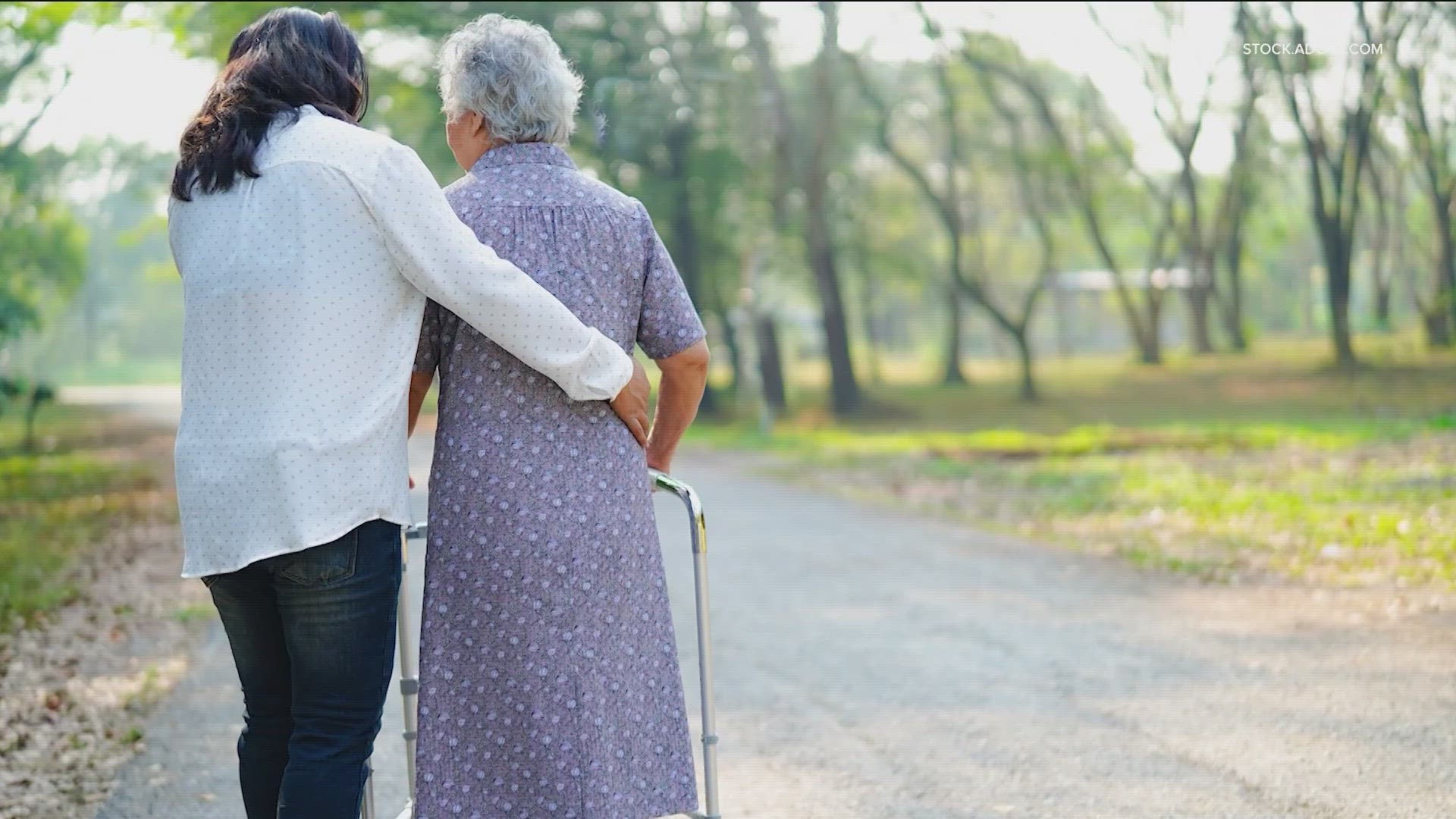AUSTIN, Texas — Heat advisories continue to pop up all across Central Texas. Extreme heat can have especially severe consequences for seniors, who are more susceptible to heat-related illnesses.
Senior care expert Jennifer Prescott, RN, MSN, CDP, founder of Blue Water Homecare and Hospice, said as people age, they have the inability to maintain their own body temperature. Seniors have a decreased sweat response, and sweating is important to cool down the body.
"As we age, that is one of those things that, you know, doesn't seem to work as well," Prescott said.
Many seniors have chronic health conditions, like diabetes, heart disease and respiratory disease. Those conditions can make heat more difficult on the heart and lungs if heart rates are higher than normal.
Limited mobility can also play a factor.
"Seniors don't have the ability to actually get out of shade, and they're standing there, or maybe they're at a soccer game or a baseball game and they're so excited to see their grandchildren play, and they don't realize that they're really becoming hot and so they just kind of they forget to come out of the sun," Prescott said.
Prescott said heat exhaustion can show signs and symptoms that associate with someone having a heart attack.
"So, having sweating, maybe they're having weakness and fatigue. We have dizziness or lightheadedness. Also, headaches is one of those things. They have pale or clammy skin, muscle aches and fatigue. Those are all signs and symptoms that they might actually [have] heat exhaustion. What ends up happening is that heat exhaustion can actually turn into a heat stroke, and that's when the body temperature can elevate greater than 104 degrees," Prescott said.
Once heat exhaustion becomes heat stroke, it becomes an emergency. Anyone experiencing symptoms must get to a cool area with air conditioning immediately.
"Also, use some cool compresses on them if you have to. Give them something cold to drink. And if their body temperature [is high] and they're seeming very lethargic and they're not coming around, you want to take them to the emergency room or call 911 immediately because it absolutely can be a medical emergency," Prescott siad.
For those who are taking care of elderly people that have dementia or Alzheimer's, Prescott said they don't actually recognize that they're hungry or thirsty a lot of the times. If you have a loved one that lives by themselves and has mild cognitive impairment, it's really important to check on them often to ensure they're eating and drinking.
"When there are family events, family vacations and reunions, being mindful that they may not recognize when it's time to tell you that they need a break. So scheduling breaks as if you would with your children," Prescott said. "The other thing is you want to make sure that you are avoiding overexertion."
With seniors, make sure they're wearing sunscreen frequently, taking breaks and having time for snacks and drinks. Also, go for walks early in the morning, preferably before 10 a.m. or after 4 p.m.

